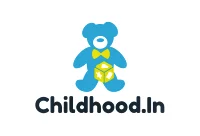The 6 month old baby development milestones are exciting to say the least, as she smiles or laughs at just about everything you say or do, especially when it is repeated over and over again, just like the game of peek-a-boo.
In this article:
- Physical Development Milestones
- Cognitive Development Milestones
- Social & Emotional Milestones
- Communication Milestones
- Sleep Milestones
- Sensory Milestones
- Emerging Skills
- Advanced Skills
- Baby Care for Your Six Month Old
- What You Can Do As Parents?
- When to Be Concerned?
Physical Development Milestones
- Your baby will have developed enough core strength to reach her feet with her hands and pull it to her mouth.
- Gets adept at using all her fingers for grasping things tight.
- Has better hand-eye coordination.
- Signs of her first teeth emerging from under the gums can be seen this month.
- Can sit without any support and may use her hands to support herself.
- Can lift head and chest off the ground and lift both her legs and arms (like a Superwoman) while being on her tummy.
Cognitive Development Milestones
- Has an enhanced sense of curiosity about things, surroundings and people around her.
- Is kind of an ‘expert’ in her own special way in imitating sounds and voices.
- Can say common vowel sounds (A, E, I, O and U) and consonant letter sounds (like B, C, D, F, G, H, etc.).
- Is aware of strangers and will be wary of being close to or being held by others.
Social & Emotional Milestones
- Can recognise familiar people well (adults and kids).
- Will enjoy playing with parents, caregivers and siblings in particular.
- Is better at facial and verbal expressions and would show different expressions for different situations.
Communication Milestones
- Loves to interact with others.
- Will keep quiet when you talk and talk when you are quiet.
- Responds very actively to her name.
- Clearly shows happiness or displeasure.
- Will babble, squeal, coo or make a variety of sounds to gain attention.
- Gesticulates, often with her arms and legs.
Sleep Milestones
- Sleeps anywhere between 5 to 8 hours at a stretch at night.
- Will sleep around 14 to 15 hours a day.
- May require one to two feeds in between her long night sleep.
- Will take about three naps a day for 2 to 3 hours each.
Sensory Milestones
- Has a better perception of depth as her 3-Dimensional vision has improved.
- Loves to touch and feel various textures and hold them for long periods.
- Gets attached to bigger, brighter and bolder looking objects.
- Loves listening to music.
Emerging Skills
- Will be able to eat a few varieties of fruits and vegetables when given in the form of soft textures by chopping and mashing.
- Your baby will rock back and forth on her arms and knees. These are signs of her ability to crawl very soon (anytime between the 7th and 11th month).
- Can move backward while being on tummy and turn her full body in either direction using her forearms and knees.
- When holding her at her chest and supported in standing position, she will be able to shift her weight through her legs and start bouncing actively.
Advanced Skills
- Your little one will start to take support in order to stand.
- Can do fast and strong alternating kicks when lying on her back.
- Will reach out to objects with one arm while being on tummy.
- Can shift toys from one hand to the other without losing grip. Can also hold bigger toys with both hands at the same time.
Baby Care for Your Six Month Old
- It’s time to baby-proof all the areas of the house that your baby has access to, as she will soon start crawling.
- Establishing a sleep pattern helps in promoting timely and adequate sleep.
- Will start putting almost any toy in her mouth. Sucking and mouthing a toy is totally normal at this stage as this is one of the ways she explores things around her and learn.
What You Can Do As Parents?
- Give your baby ample tummy time to strengthen her arms, legs, neck and core muscles.
- Read to your baby from bright and colourful books.
- Take her to a garden, beach, park or any outdoor location with an open sky. Since she is mostly indoors, being outdoors gives her an opportunity to look at people and things far away, thereby helping her long distance vision.
- Your little one can now be introduced to solid foods as she has a stronger digestive system and is also teething. This is an important six month baby development.
- Make her meet new people, especially kids, to develop her social skills.
- At this stage, she is generally in a good mood and happy unless of course she is hungry or tired, when she can be calmed by gentle rocking or a soothing hug.
- Track your baby’s body weight and get regular checkups and vaccinations done.
When to Be Concerned?
- Makes no sounds or does not respond to sudden noise or sounds.
- Is unable to sit even with support or doesn’t try to support herself while sitting.
- Is inactive for quite a while or shows poor motor skills.
- Doesn’t recognise or respond even to familiar faces.
Note: Each baby is different and therefore tends to grow at a different pace. Chances are that your little one may have crossed certain milestones already, or is probably a little behind on a few others, which is normal. If you still feel there is something of concern, do speak to your paediatrician/registered professional child healthcare provider.

